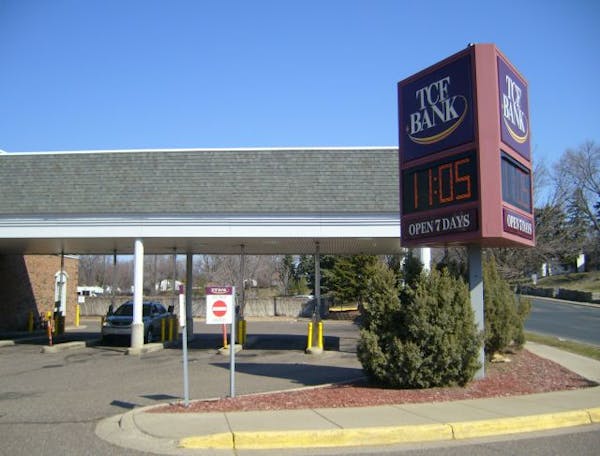TCF Financial Corp. is dropping its legal fight with the Federal Reserve Board over debit card swipe fees after two courtroom losses, saying it's time for the bank to move on.
"While we continue to believe that the Durbin Amendment is unconstitutional because it requires below-cost pricing and exempts 99 percent of all U.S. banks, we believe our lawsuit has served its purpose in demonstrating the unfairness of the Durbin Amendment and that it is time to move on," TCF CEO William Cooper said in a prepared statement Thursday.
The Wayzata-based bank said it would ask the U.S. District Court in South Dakota to dismiss the lawsuit it filed against the Federal Reserve without prejudice, which leaves open the possibility of refiling.
The announcement comes after a tumultuous Wednesday. First, TCF lost another round in the battle against the new federal law limiting swipe fees, when a U.S. appeals court rejected its effort to block the law with an injunction.
Then, within hours, the Federal Reserve Board announced it would cap the fees big banks can charge retailers for each swipe of a debit card at 21 to 24 cents. That's substantially more than the 12-cent cap the Fed originally proposed in December, and is seen as a win for big banks such as TCF that lobbied hard against the cap.
"The Federal Reserve Board's final rule is an improvement from its initial proposal and recognizes many of the points we made in our case," Cooper said.
Shares in the Wayzata-based bank shot up Wednesday after the Fed's new swipe fee ruling was announced, closing at $14.34. On Thursday, shares drifted back down nearly 4 percent to close at $13.80.
The new cap on debit card transaction fees was mandated last year by the Dodd-Frank financial regulation law, which included the so-called Durbin Amendment.
Last fall, TCF sued the Federal Reserve Board over the rule, arguing that the cap amounted to an unconstitutional taking of property and violated the equal-protection clause of the Fifth Amendment to the Constitution by giving an advantage to smaller banks. The law only applies to banks with more than $10 billion in assets.
About one-quarter of TCF's non-interest income comes from debit card interchange fees, compared with 7 percent at a typical Midwest bank, according to investment firm Stifel Nicolaus.
A judge ultimately denied TCF's request for a preliminary injunction, and TCF appealed. On Wednesday, an appeals court panel unanimously agreed with the earlier decision.
In its release Thursday, TCF said it thinks the latest rejection "was based largely on the grounds that at this stage of the litigation, it was not clear that the exemption for banks with total assets under $10 billion would be effective."
Merchants reviewing options
Doug Kantor, lawyer for the Merchants Payments Coalition, a group more than 100 trade associations representing retailers, said the final debit card fee cap was "the best outcome that TCF could have dreamed of."
"From our perspective the Fed crumbled in the face of bank lobbying pressure and did not follow the law," Kantor said.
The group is reviewing its legal options, Kantor said.
Jennifer Bjorhus 612-673-4683
